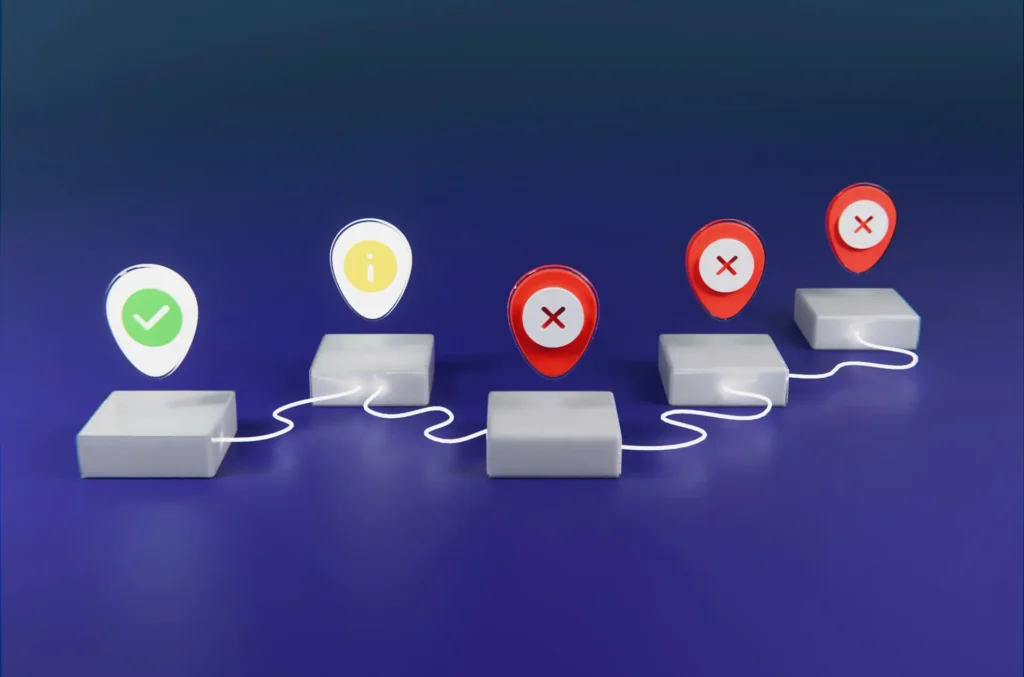Introduction
Choosing the right end-to-end testing tool can be challenging, given the array of options available. Ensuring your applications function seamlessly and perform well throughout their lifecycle is crucial.
This blog will share insights from my extensive experience using various end-to-end testing software across diverse teams and projects. It will help simplify decision-making by recommending the best tools for your needs.
Understanding End-to-End Testing
End-to-end testing is a vital strategy in software development that assesses an application’s functionality and performance under conditions resembling real-world use. It ensures seamless interaction between all integrated components, completing tasks without errors. This testing covers the entire software product, including front-end, back-end, and intermediary components, incorporating UI, API, and regression testing.
Key Features:
- UI Tests for Desktop and Mobile: Creating test scenarios for user interfaces on desktop and mobile to ensure responsiveness and user-friendliness.
- API Testing: Validating that APIs meet functionality, reliability, performance, and security expectations.
- Cross-Browser Testing: Ensuring the application functions correctly across different web browsers for an enhanced user experience.
- Regression Testing: Crucial for verifying that recent code changes have not adversely affected existing functionalities.
Top End-to-End Testing Tools
End-to-end testing tools automate comprehensive application testing across all operational components. These tools are crucial in software development, ensuring systems perform as expected under realistic scenarios. By simulating user interactions and automating navigation through software.
A List of Best End-to-End Testing Tools for 2024
- BugBug
- Features:
- Codeless Automation Testing
- Cloud-Based
- Real Browser Testing
- Integration with CI/CD pipelines and tools like Slack
- Pros:
- Easy creation of end-to-end test scenarios
- Ideal for Agile teams with frequent iteration cycles
- Cons:
- Limited customization options for complex scenarios
- Features:
- TestRigor
- Features:
- Complex Test Case Customization
- AI Assistance
- Codeless Automation
- Pros:
- Simplifies test maintenance and creation with AI
- Accessible to non-developers
- Cons:
- May require additional training for full utilization
- Features:
- New Relic
- Features:
- Full-Stack Observability
- Real-Time Analytics
- Customizable Dashboards
- Pros:
- Provides deep insights into application performance
- Helps in real-time monitoring and optimization
- Cons:
- Can be complex for beginners to set up and use
- Features:
- Endtest
- Features:
- Automated Result Analysis
- Cross-Browser and Cross-Platform Testing
- Video Recordings
- Pros:
- Efficient analysis of test outcomes
- Detailed result analysis for automated testing
- Cons:
- Limited support for advanced customization
- Features:
- QA Wolf
- Features:
- Fully managed end-to-end test coverage
- Comprehensive test plan strategy
- Failure triaging and test maintenance
- Pros:
- Provides expert QA engineers for test execution
- Integrates with existing internal systems for real-time status updates
- Cons:
- Requires ongoing subscription for access to QA engineers
- Features:
- Nightwatch
- Features:
- Sequential or Parallel Test Execution
- Integration Testing Support
- Flexible and Assertion Framework
- Pros:
- Does not require a separate testing framework
- Easy setup and implementation
- Cons:
- Limited community support compared to other tools
- Features:
- Endtest
- Features:
- Cloud-Based
- No-Code Interface
- Automated Test Case Generation
- Pros:
- Easy to use without coding skills
- Self-healing technology for test adjustments
- Cons:
- Limited advanced customization options
- Features:
- Mabl
- Features:
- Low-Code Test Automation
- AI-Powered Automation Testing
- Integrated API and UI Tests
- Pros:
- Simplifies testing with scriptless code
- Supports full AI automation testing
- Cons:
- Customized pricing may be expensive for small teams
- Features:
- Avo Assure
- Features:
- Scriptless Automated Testing
- Cross-Platform Performance Testing
- Mind Map Visualization
- Pros:
- Provides 90% test coverage without coding
- Easy workflow visualization with mind maps
- Cons:
- Limited integration options with third-party tools
- Features:
- Headspin
- Features:
- AI-Powered Performance Insights
- Global Device Cloud
- Secure Testing Operations
- Pros:
- Detailed insights into application performance
- Scalable testing operations under actual network conditions
- Cons:
- Requires additional investment in real devices for testing
- Features:
These tools offer diverse features to support various testing needs, aiding teams in maintaining high-quality software delivery processes.
Benefits of End-to-End Testing
End-to-end (E2E) testing ensures seamless application functionality across devices and networks, catching errors in integrated units’ interactions. It offers:
- Comprehensive Coverage: Tests entire applications for flawless user experiences.
- Efficient Automation: Reduces testing time and effort, especially useful for regression testing.
- Parallel Testing: Speeds up testing with simultaneous test runs.
- Enhanced QA: Identifies user-facing issues missed in other testing phases.
- Multi-Platform Support: Ensures consistent functionality across web and mobile platforms.
- Codeless Tools: Simplifies test case management, making testing accessible to non-technical users.
- Full-Spectrum Testing: Covers all app aspects, including performance, security, and usability.
- Strategic Assurance: Aligns with business objectives, ensuring end-to-end processes meet user expectations.
What’s Next?
Choosing the right end-to-end testing solution is critical in modern software development, especially for thoroughly testing web application functionality. Among the top 10 tools available, looking for robust integrations with testing frameworks and support for cloud-based e2e test frameworks is essential. The best tools seamlessly perform end-to-end testing and integrate with existing platforms. This methodology checks how software components interact and ensures faultless operation in real-world scenarios. Teams must select tools that meet their specific needs to enhance their applications’ overall quality and reliability effectively.
